Retail traders lost ₹1.06 lakh crore in FY25- SEBI report

Retail traders lost ₹1.06 lakh crore in FY25- SEBI report According to SEBI study, the average loss of every trader has suffered a loss of Rs 1.1 lakh. Retail investors have suffered a loss of more than Rs 1 lakh crore in the derivatives segment of the stock market in FY 2025. About 91% of individual traders in this segment have been in losses. This is 41% higher than last year (FY24), when the loss was Rs 74,812 crore. SEBI has released a study regarding this. The average loss of every trader was Rs 1.1 lakh According to the study, the average loss of each trader was Rs 1.1 lakh, which was Rs 86,728 last year. In FY25, 9 out of 10 traders have lost money. There was no improvement in the situation since last year. Overall, about 96 lakh unique traders participated in it, which is 20% less than before, but 24% more than two years ago. SEBI covered all investors in its study. Damage in four years about 2.87 lakh crore rupees In the last four years, the total loss of retail traders has been around Rs 2.87 lakh crore. 40,824 crore rupees in FY22 65,747 crore rupees in FY23 74,812 crore rupees in FY24 1.06 lakh crore rupees in FY25 This shows that the loss is increasing every year. SEBI tightened the rules, but the loss did not reduce SEBII is trying to make investors aware and to tighten the rules. SEBI has tightened some rules since November 2024. Such as decreasing weekly expiry, increasing lot size, and increasing trading margin. Also, he is also increasing the monitoring of big players. What is derivatives trading? Derivatives trading means to invest in complex products like futures and options (F&O). This is a high risk game in the stock market. This is not easy for the common people and most people lose money in it. Future: This is a kind of contract, in which you promise that in future, on a certain date, you will buy or sell a share or index (eg bank Nifty) at a fixed price. This contract is valid to a certain date (expiry). In this, you do not have to pay the full amount at the time of the deal, only margin (about 10-20%). Example: Suppose, you buy 1 contract of bank Nifty futures, which is trading at 48,000. If the lot size is 15, then its Nural Value: 48,000 × 15 = ₹ 7,20,000. It does not have to pay the entire amount, only margin (about 10-20%), such as ₹ 1,00,000. If the bank Nifty reaches 49,000 by expiry, your profit will be: (49,000 – 48,000) × 15 = ₹ 15,000. But if the index falls to 47,000, you will suffer a loss of ₹ 15,000. Options: This is also a derivative contract, but it gives you the right (not promised) that you can buy a share or index in a fixed price (strike price) (call option) or sell (put option). Whether you use this right or not, it is your will. Example: Suppose the bank is at the Nifty at 48,000, and you buy a put option with a strike price of 47,500 and the premium is ₹ 200 per lot. If the lot size is 15 then premium: ₹ 200 × 15 = ₹ 3,000. If the bank Nifty comes at 47,000 on expiry, your put option will be in profit: (47,500 – 47,000 – 200) × 15 = ₹ 4,500 (profit). But if the bank Nifty goes to 48,500, your option will be useless, and you will take a loss of just ₹ 3,000 (premium). 65% to 85% of brokers come from Revenue F & O Stock brokers generate most of their revenue from Future and Options Trading, which is close to 65% to 85%. Last year, Nitin Kamath, founder of Brokerage firm Ajodha, said that the regulatory changes that restricted SEBI’s F&O could affect brokers’ revenue badly. There are more news … Source link
Amazon users flock to Flipkart-what’s the real story?
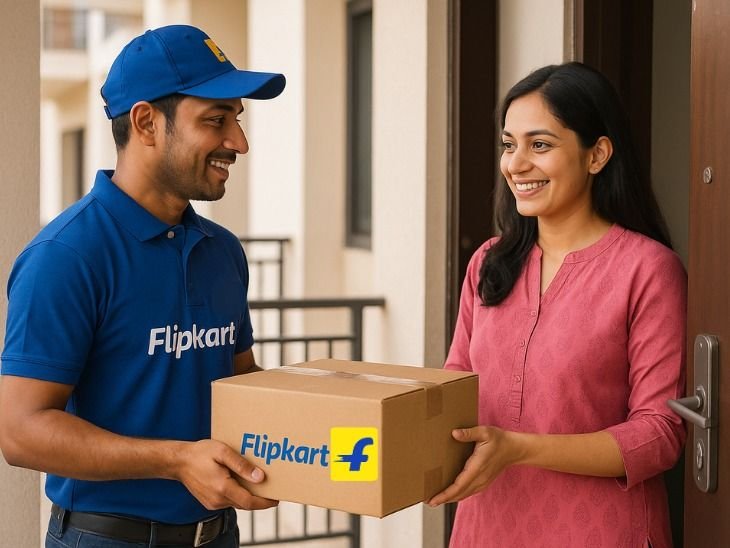
Amazon users flock to Flipkart-what’s the real story? Yes, you read it right. Ever since this fun news has come on the internet, there has been a stir on social media and everyone has a smile on his face. Every day millions of people shop from Flipkart, but an order caught everyone’s attention-the ‘Amazon’ is why they are buying from Flipkart? At first sight, it looked like changing loyalty from a brand. There was a lot of speculation on the Internet – is there any new war between two big companies? But now comes the twist that no one expected. The truth came out as soon as this ad was carefully seen. ‘People of Amazon’ are not actually those about whom you must have thought, but are residents of a residential society named Amazon Park! Which looked sarcasm on a brand in appearance, actually a juggling of fun words that laughed everyone. Flipkart has again caught everyone’s attention through this fun and quirky marketing campaign. Now this is an adventure claim, a great branding, or just a funny stunt-you decide. The game of this clever words has now become the punchline of the season. With laughter -joking, Flipkart again showed that he always wins with his creative ads – especially during his much awaited Goat Sale, who is known for his unmatched offers and strong discounts. It shows how a small word game can attract the attention of the whole country – no matter how competitive the online retail world is. Source link
India asked X to block 2,300 accounts- then reversed

India asked X to block 2,300 accounts- then reversed The microblogging platform X (East Twitter) on Tuesday claimed that the Government of India ordered to block more than 2,300 accounts on July 3. The order also included the official handle of the Global News Agency Reuters. The Global Government Affairs team of X said in a post that the Government of India ordered all these accounts to be blocked under Section 69A of the Information Technology Act. The Ministry of Electronics and Information Technology (Meity) asked to follow the order within an hour without giving any reason and keep the accounts an indefinite block. Order withdrew after public protest According to the X, after the public protest, the government on Sunday requested to unlocate the accounts of Reuters (@Ruters and @REUTERSWORLD). These accounts were blocked to users in India on Sunday, but were later restored on the same day. X expressed concern over the press sensorship in India, saying that it was considering all legal options. However, X under Indian law has obstacles in making legal challenge against these government orders. The company has appealed to the affected users to find legal measures through courts. Ministry reply: No new order has been given On the other hand, Meity dismissed X’s claims and said that no new blocking order was issued on July 3. The ministry claimed that as soon as the Reuters’ accounts were blocked, it demanded to restore the accounts from July 5, in constant contact with the X. The ministry says that X delayed by citing technical reasons and unlocked Reuters and other URLs only after 9 pm on 6 July, which took more than 21 hours. X filed a case against the government The X has filed a case against the Government of India in the Karnataka High Court, challenging the blocking orders issued under the Information Technology Act 2000. The company says that these orders lack adequate security measures. The case was heard on Tuesday. The X has demanded amendment in its petition filed in March, including the demand for the cancellation of Rule 3 (1) (D) of the Information Technology Regulation. This rule gives government agencies the power to order the intermediaries (eg X) to remove the content. There has been a dispute between X and the government before This is not the first time that there has been a confrontation between X and the Government of India. In May this year, the handle of the Global Government Affairs Team of X was blocked in India, which was unlocked a day later. At that time the government had issued an order to block 8,000 accounts. Basis of legal dispute The petition of X states that Section 79 (3) (b) does not give the government the right to issue blocking orders to the mediators. This section says to remove the legal exemption given to the mediators. If they do not follow the government’s takedown orders. In collaboration with Rule 3 (1) (D) of the Information Technology (Arbitrator Guidelines and Digital Media Ethics Code) Act-2021, it allows the government to remove the content. There are more news … Source link
Bharat Bandh-25 crore workers strike- impacting banks and transport
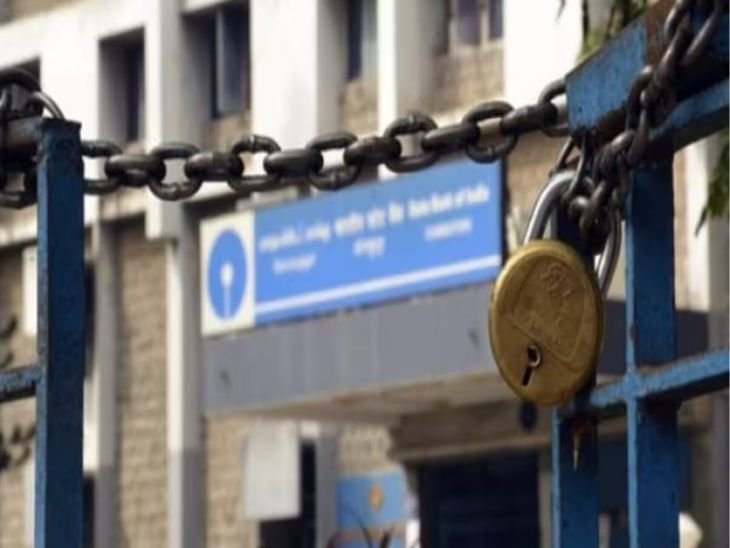
Bharat Bandh: 25 crore workers strike, impacting banks and transport.
FSSAI mandates e-commerce food platforms show licenses, ensure hygiene.
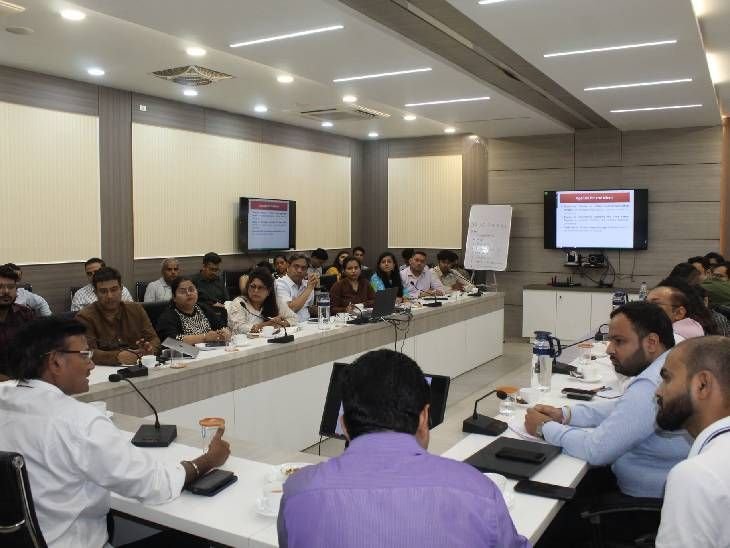
FSSAI mandates e-commerce food platforms show licenses, ensure hygiene. FSSAI’s CEO G. A meeting was held on July 8 between Kamla Vardhan Rao and representatives of the e-commerce platform. FSSAI i.e. Food Safety and Standard Authority of India has asked all e-commerce platforms working in India to strictly follow food safety and hygiene protocols. Apart from this, the food regulator has asked the websites to display license and upload the date of warehouse online. At the same time, safety and hygiene training has also been ordered to the employees who handle food handle. On Tuesday, representatives of FSSAI and more than 70 e-commerce platforms were united in Delhi on Tuesday. In this, the CEO of FSSAI said that the agreement with food security would not be tolerated. Strict action will be taken if the rules are violated. All the food handlers included in the supply chain will have to provide security protocols or facial identification training. The FSSAI license/registration number will have to be cleared clearly. The platforms will have to upload information about warehouses and storage facilities facilities on the FOSCOS portal. License of Jepto and Blinkit suspended in Maharashtra and Pune FSSAI has taken this step due to continuous food safety vigor by Quick Commerce Platform for some time. Last month, Maharashtra Food and Drugs Administration (FDA) suspended Jepto’s dark store in Dharavi and the license of the Blinkit store in Balewadi area of Pune. , Read this news too 1. Explosives bought from Amazon for Pulwama attack: FATF report; Terrorist who attacked Gorakhnath temple received payment from PayPal The explosive e-commerce website used in the 2019 Pulwama terror attack was purchased from Amazon. The Financial Action Task Force (FATF), an organization that monitors terrorist funding worldwide, has claimed this in its report. FATF has also mentioned the attack on the Gorakhnath temple in Gorakhpur, UP in 2022 in this report. Here the attacker terrorists were given money through online money transfer platform PayPal. Read full news … 2. CCPA action on 13 e-commerce companies including Amazon-Flipkart: Send notice for illegal sale of walkie-talkie amid Indo-Pak tension, Authority will also bring guidelines Earlier, amidst the situation of India-Pakistan war, the Central Consumer Protection Authority (CCPA) issued a notice to 13 e-commerce companies like Amazon-Flipkart for illegal sale of wakey-talkie devices on their platforms. The order was issued by CCPA in the official statement on Friday (May 9). Read full news, 3. Case of discrimination in online taxi booking reached Parliament: Accused of charging more rent from iPhone user; Government bid- investigation is going on The government on Wednesday responded in Parliament over allegations of collecting different fare from iPhone and Android users on cab companies like Ola and Uber. Minister of State for Consumer Affairs Prahlad Joshi said that the matter has been taken seriously and investigation has been started. In fact, it is alleged that companies like Ola and Uber are charging more fare than iPhone users, while Android users get the same ride cheaper. Read full news … There are more news … Source link
Delhi HC dismisses Turkish firm’s airport service ban petition
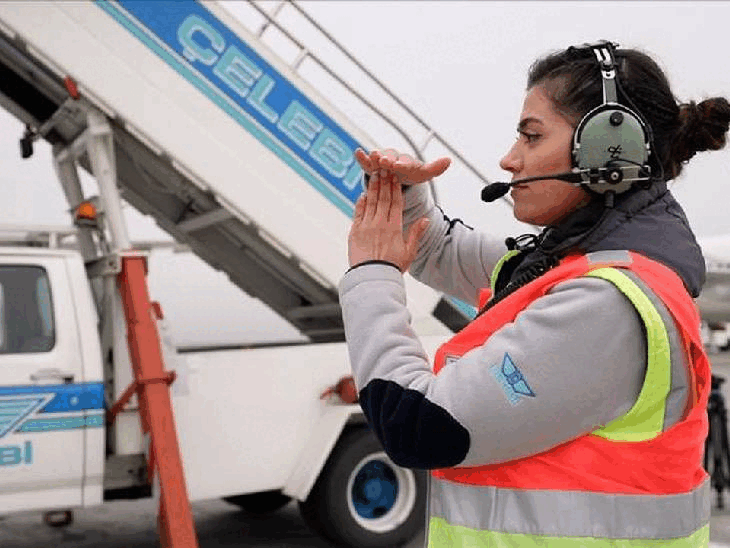
Delhi HC dismisses Turkish firm’s airport service ban petition The central government on 15 May 2025 canceled the security approval of Selebi and its affiliates through the Bureau of Civil Aviation Security (BCAS). The Turki’s ground handling and cargo service company Selebi Aviation’s petition has been rejected by the Delhi High Court on 7 July today. In the petition, the company challenged the central government’s decision to cancel its security approval. The Central Government quoted the Celebi approval, quoting national security. 6 Understand the whole matter in questions and answers… Question 1: What is Celibi Aviation and what was its work in India? answer: Celebi Aviation is a Turki company, which offers ground handling and cargo services at airports. That is, the company works like landing of airplanes, handling of passengers, loading-unloading of goods, and cargo management. The company had operations at 9 major airports like Delhi, Mumbai, Bengaluru, Hyderabad, Chennai, Ahmedabad, Goa, Cochin, and Kannur. The company handled around 58,000 flights and 5.4 lakh tonnes of cargo every year. Its 14,000 employees work in India, who are all Indians. Celebi Aviation, established in 1958, works at 70 stations worldwide. Question 2: Why was Celebi security approval canceled? answer: The Central Government on 15 May 2025 canceled the security approval of Selebi through the Bureau of Civil Aviation Security (BCAS). The reason for this was described as National Security. There was a recent tension between India and Pakistan. In response to the terrorist attack in Pahalgam, India carried out operations on terrorist bases in Pakistan by running Operation Sindoor. During this time the Turkas supported Pakistan and condemned India’s action. According to media reports, due to this, the Government of India raised doubts on Turki -related companies. In some reports, it was also claimed that Celibi may have a connection to the Turki President’s daughter Sumey Erdogan. However, Celebbi dismissed these claims outright. Solicitor General Tushar Mehta said in the court that the government had received intelligence, on the basis of which this decision was taken. He described it as a special case related to national security. Question 3: What did Celeby argue in court? answer: Celebi filed a petition in the Delhi High Court, saying that the government canceled their approval without giving any notice, without hearing and without any concrete reason, which is wrong. His Indian unit is completely Indian company and all its employees are Indians. The company said that she had been working in India without any stains for 17 years, and the sudden cancellation of the approval of 3,791 employees and the trust of investors is in danger. Celebi made it clear that he has nothing to do with Sumey Erdogan, daughter of Turk’s President Recep Taip Erdogan or his company Baikar (which makes drones). Celebi’s lawyer Mukul Rohatgi said that the government only cited “national security”, but did not show any concrete evidence. He also said that the government gave some information to the court in a sealed envelope, which was not shown to Celibi, which is against the natural Justice. Question 4: What decision did Delhi High Court ruin? answer: On 7 July 2025, Justice Sachin Dutta of Delhi High Court dismissed Celebi’s petition. The court said that national security is at the top and it is difficult to challenge such decisions in the court. The court said, “Better Safe Dan Sorry” means “it is better to take care.” Justice Dutta questioned whether the decision related to such security could be challenged in the court, and was it necessary to give notice to the government first. The court admitted the government’s plea that the decision taken on the basis of intelligence information was in the national interest. Justice Sachin Dutta of Delhi High Court dismissed Celebi’s petition. Question 5: What was the impact of this decision on Celebi and Airports? answer: This decision gave a big blow to Celebbi’s business in India: Operations closed: 9 airports including Delhi, Mumbai, Bangalore finished their contracts with Celebi. For example, Mumbai International Airport Limited (MIL) canceled the contract of Celebi’s subsidiary Celebi Nas Airport Services. New companies: Bird Flight Services in Delhi and Air India Sats, Globground India in Bangalore and other companies in Kochi took over ground handling. Indo Thai Airport Services in Mumbai was appointed in 24 hours. Employee: The job of 14,000 Celebi employees is in danger. However, Delhi Airport said that it would not remove the employees. Legal Battle: Apart from Delhi, Celebi also filed a petition in the Bombay High Court, which is to be heard on July 10. Question 6: What can Celebi do now? answer: Celebi has no longer option left: Appeal in Supreme Court: Celebi can challenge the decision of the Delhi High Court in the Supreme Court, but the courts generally remain with the government in terms of national security. Bombay High Court: Celebi’s petition will be heard on July 10 in the Bombay High Court, but the decision of the Delhi High Court will be its basis. Business in new countries: Celabi may have to stop operations in India, after which it can focus on its business in other countries. The company, established in 1958, works at 70 stations worldwide Celebi Aviation is the first private -owned ground handling service company in Turki’s aviation industry. It provides ground handling, cargo and warehouse management services. Established in 1958, the company today works at 70 stations worldwide. Its services include wheelchair support, ramp services, passenger and cargo handling, warehouse management, bridge operation, lounge management, and aircraft cleaning etc. Celebbi offers ground handling services at nine airports including Delhi, Cochin, Bangalore, Hyderabad, Chennai and Goa in India. Celibs provide ground handling, cargo and warehouse management services. Celibi had said- that Turki’s organization is not After the cancellation of the approval, Celebi Aviation India had said- “We are not the organization of the Turkas from any standard and fully follow corporate governance, transparency. We have no political relations with any foreign government or individuals.” The company said- We are
Capgemini acquires WNS for $3.3B to enhance AI capabilities
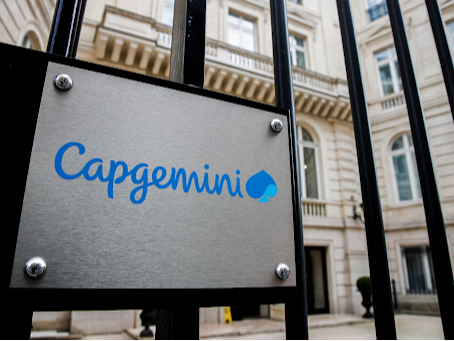
Capgemini acquires WNS for $3.3B to enhance AI capabilities Capgemini has bought each WNS stock for $ 76.5 (Rs 6,570). French IT company Capgemini has announced to buy the Indian company WNS for $ 3.3 billion (about 28 thousand crores). Capgemini has bought each WNS stock for $ 76.5 (Rs 6,570), which is 17% higher than the Closing Prize of July 3. Capgemini wants to strengthen AI (Artificial Intelligence) and Digital Business Process through this deal. Capgemini herself wants to move forward in the field of agent AI and gannurable AI (who can take decisions himself). The deal is expected to be completed by the end of the year after getting approval from the boards of both companies. Both companies will benefit Capgemini said that this deal will open the opportunities for cross-selling immediately i.e. both companies will be able to sell their services to each other’s clients. Also, both of them will earn a total of 1.9 billion euros in 2024 from digital BPS (Business Process Services). With this, Capgemini will be able to help its clients better in business and technology transformation. Capgemini’s headquarters are located in Paris, France. Capgemin will change the way of business with AI CEO Aeman Egjat of Capgemini said that with the arrival of WNS, the company will get a chance to become a leader in AI-Powered Intelligent Operations. Now companies will be able to move their functioning more smart through AI by moving away from traditional process. WNS CEO said- will create new value for clients WNS’s CEO Keshav Murugesh said that with Capgemini, the two companies together will create a new value for clients. WNS’s domain experts and Capgemini’s technology will make the business process further improved. , Read this news too Capgemini CEO said- 47.5 hours of work a week enough: Ashwin Yardi weekends should work on weekends; Murthy advised 70 hours of work Ashwin Yardi, CEO of IT service company Capgemini India, has stated enough to work for 47.5 hours a week. Yardi said that he is against the weekends to work with employees. On Tuesday, an employee at the Nascom Technology and Leadership Forum asked questions about the ideal time hour every week. Read full news … There are more news … Source link
